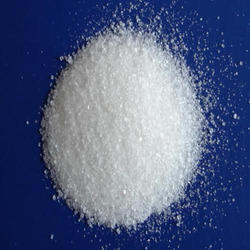+91 7600825695 Info@shreerangtrading.com


Ammonium Sulphate
(NH4)2SO4
Ammonium sulphate, is an inorganic salt with a number of commercial uses. The most common use is as a soil fertilizer. It contains 21% nitrogen and 24% sulfur.
Ammonium sulfate is made by treating ammonia with sulfuric acid: 2 NH3 + H2SO4 ? (NH4)2SO4 A mixture of ammonia gas and water vapor is introduced into a reactor that contains a saturated solution of ammonium sulfate and about 2 to 4% of free sulfuric acid at 60 °C. Concentrated sulfuric acid is added to keep the solution acidic, and to retain its level of free acid. The heat of reaction keeps reactor temperature at 60 °C. Dry, powdered ammonium sulfate may be formed by spraying sulfuric acid into a reaction chamber filled with ammonia gas. The heat of reaction evaporates all water present in the system, forming a powdery salt. Approximately 6,000 million tons were produced in 1981 Ammonium sulfate also is manufactured from gypsum (CaSO4•2H2O). Finely divided gypsum is added to an ammonium carbonate solution. Calcium carbonate precipitates as a solid, leaving ammonium sulfate in the solution. (NH4)2CO3 + CaSO4 ? (NH4)2SO4 + CaCO3 Ammonium sulfate occurs naturally as the rare mineral mascagnite in volcanic fumaroles and due to coal fires on some dumps